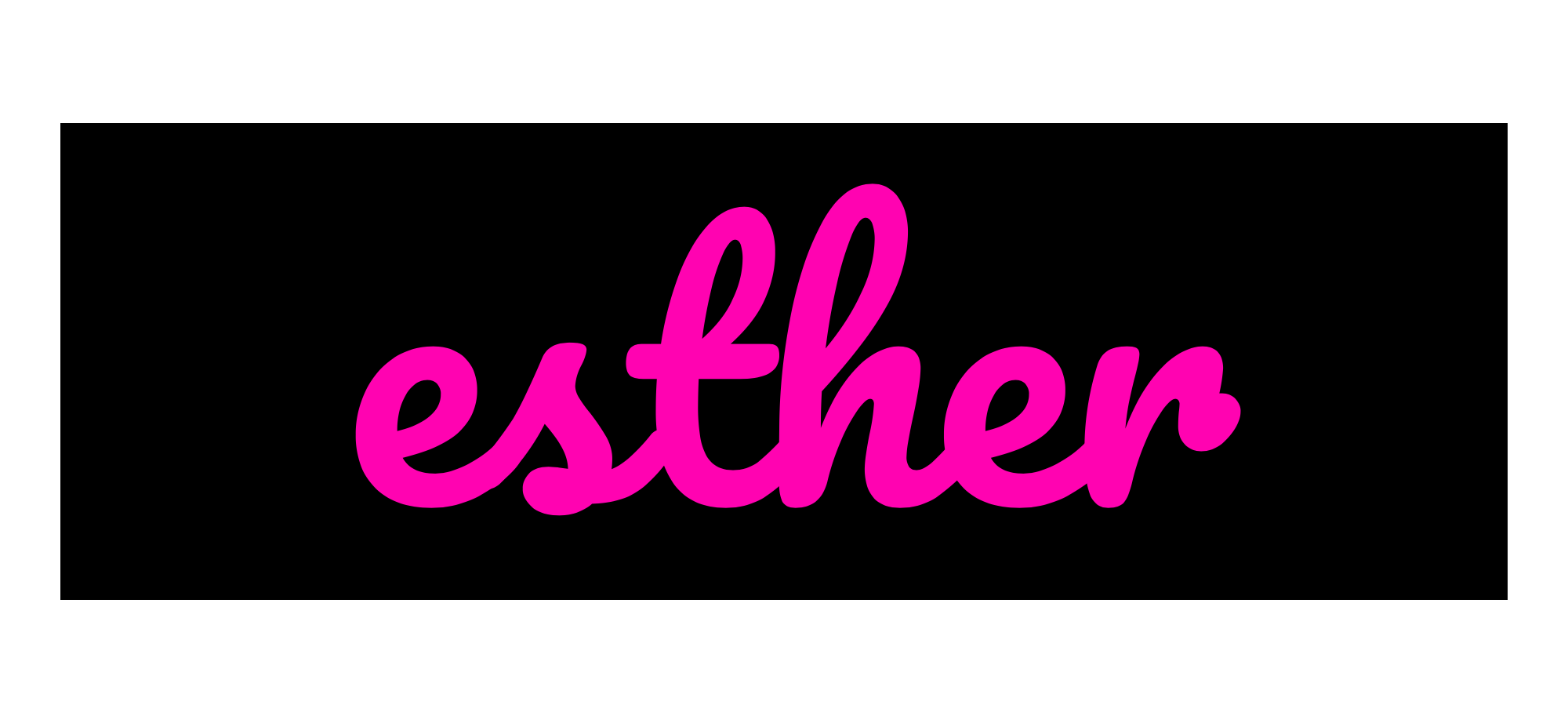7 Lessons I Learned Running a Marathon

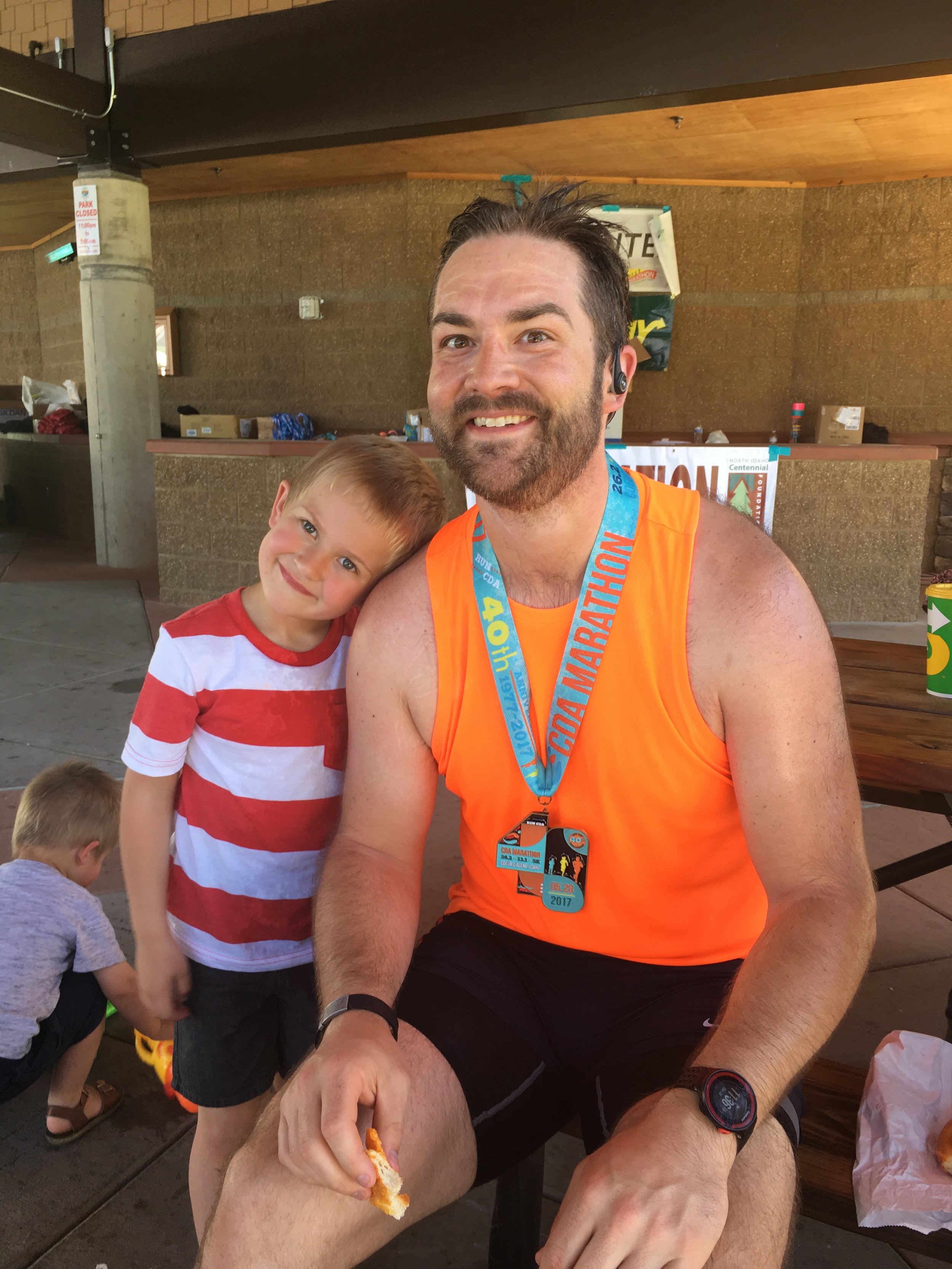
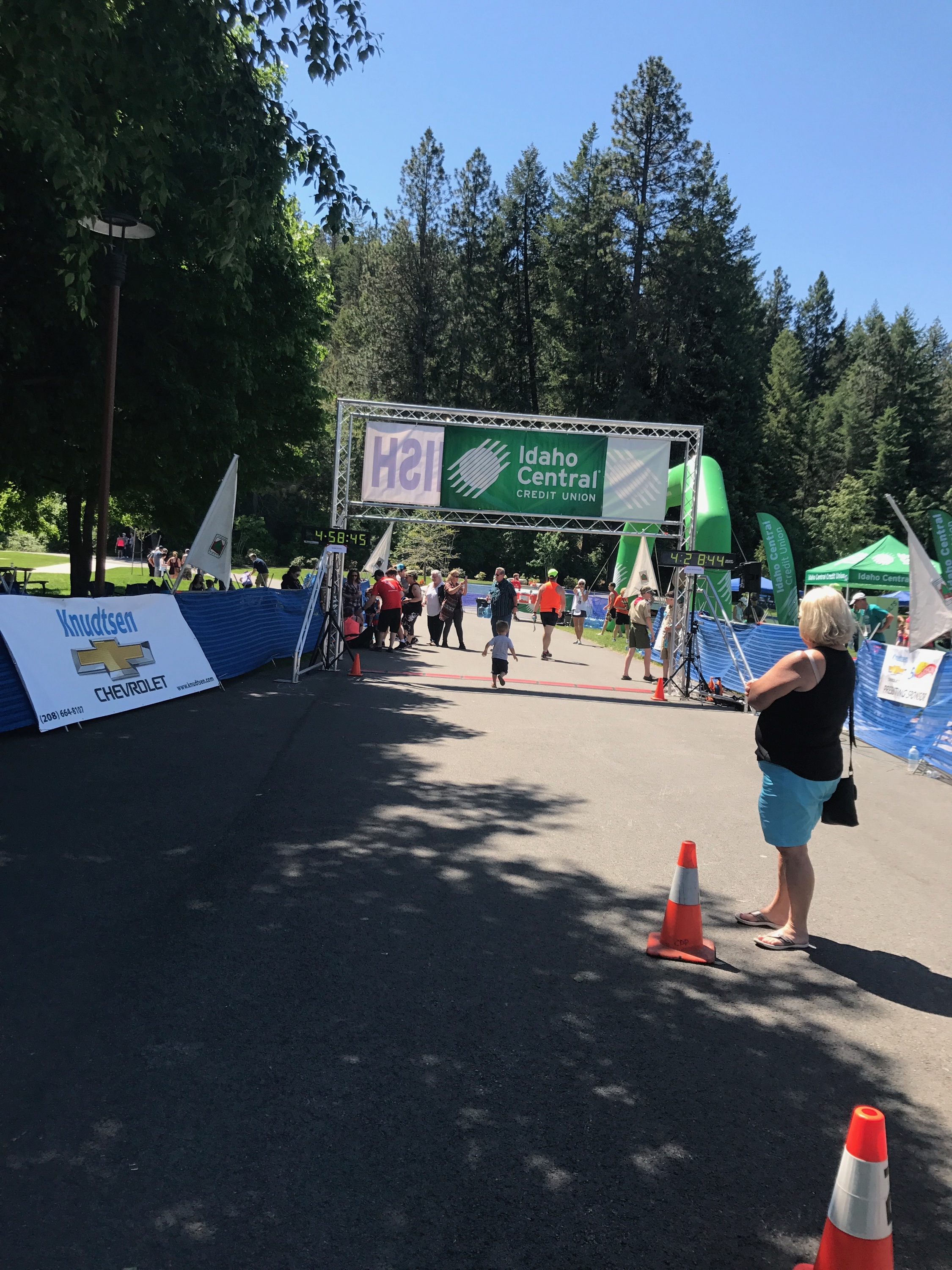
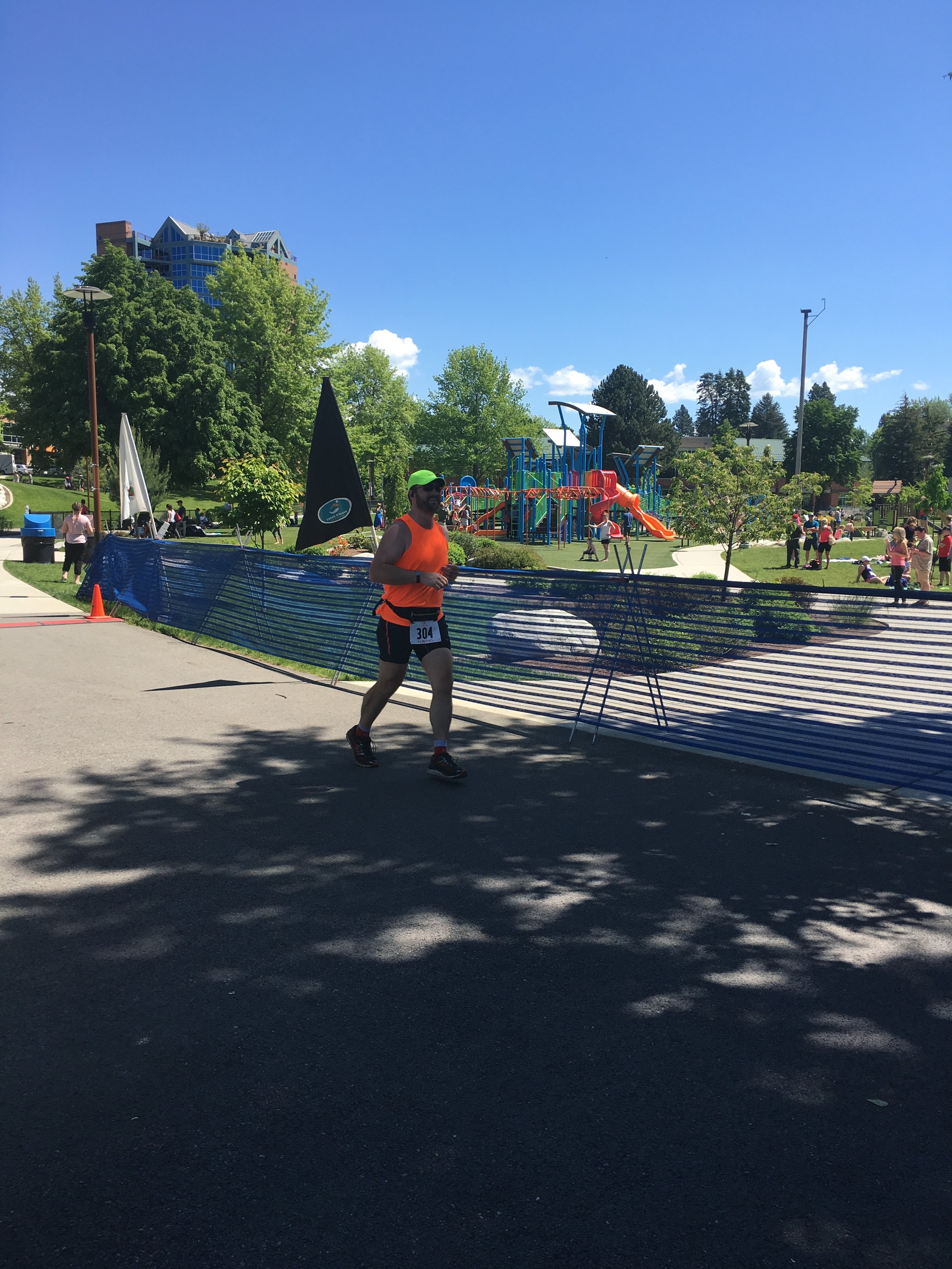
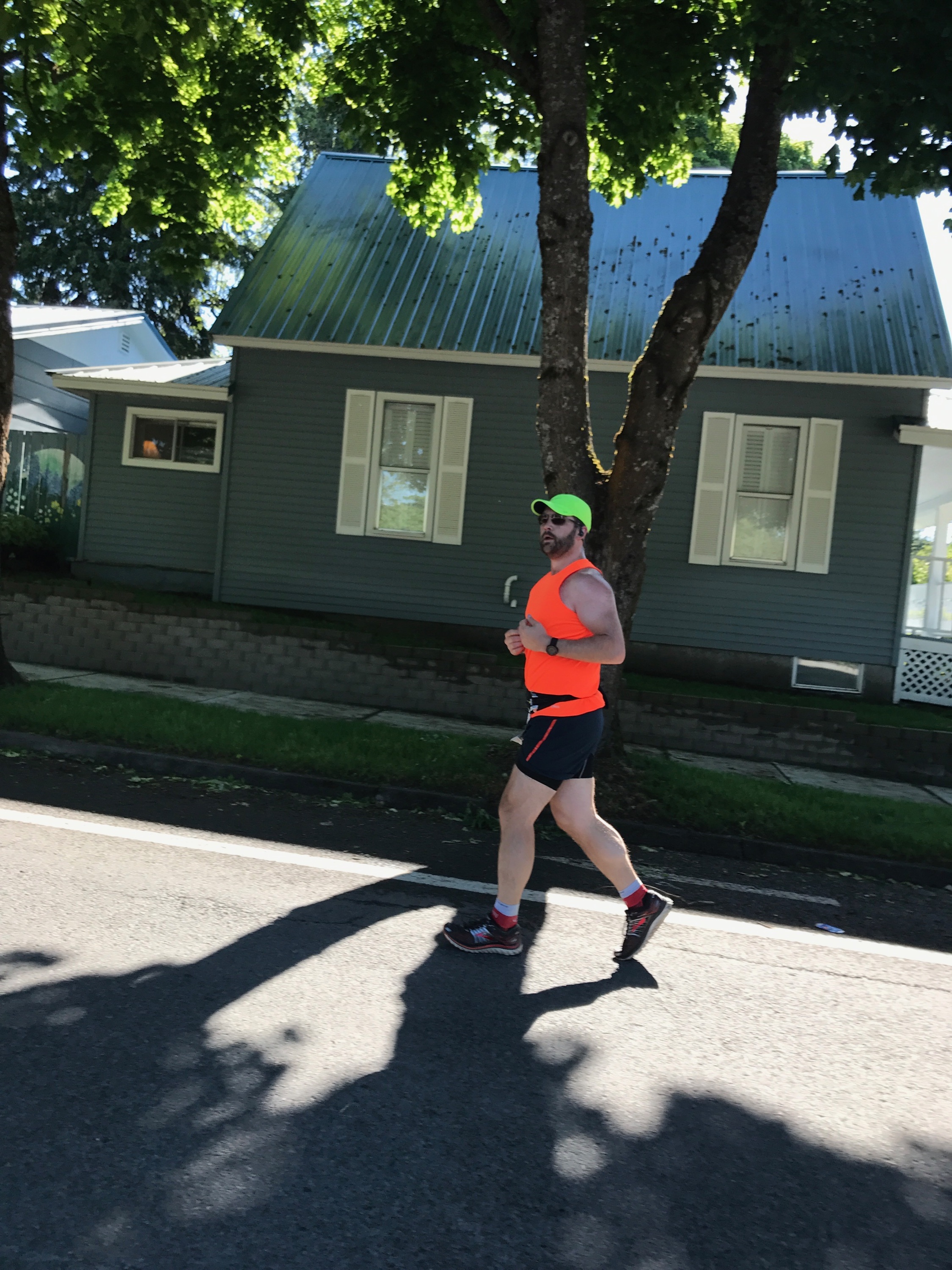
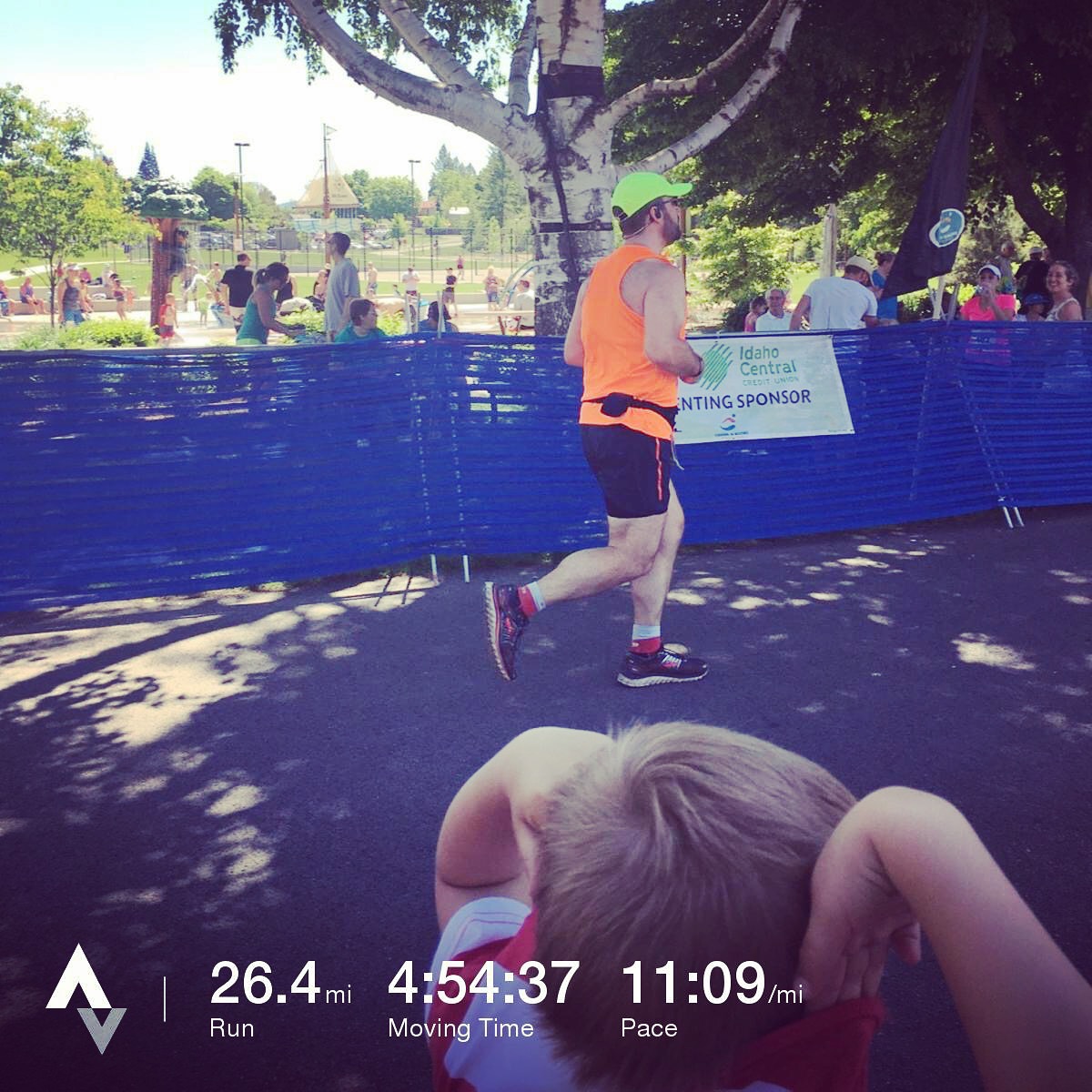
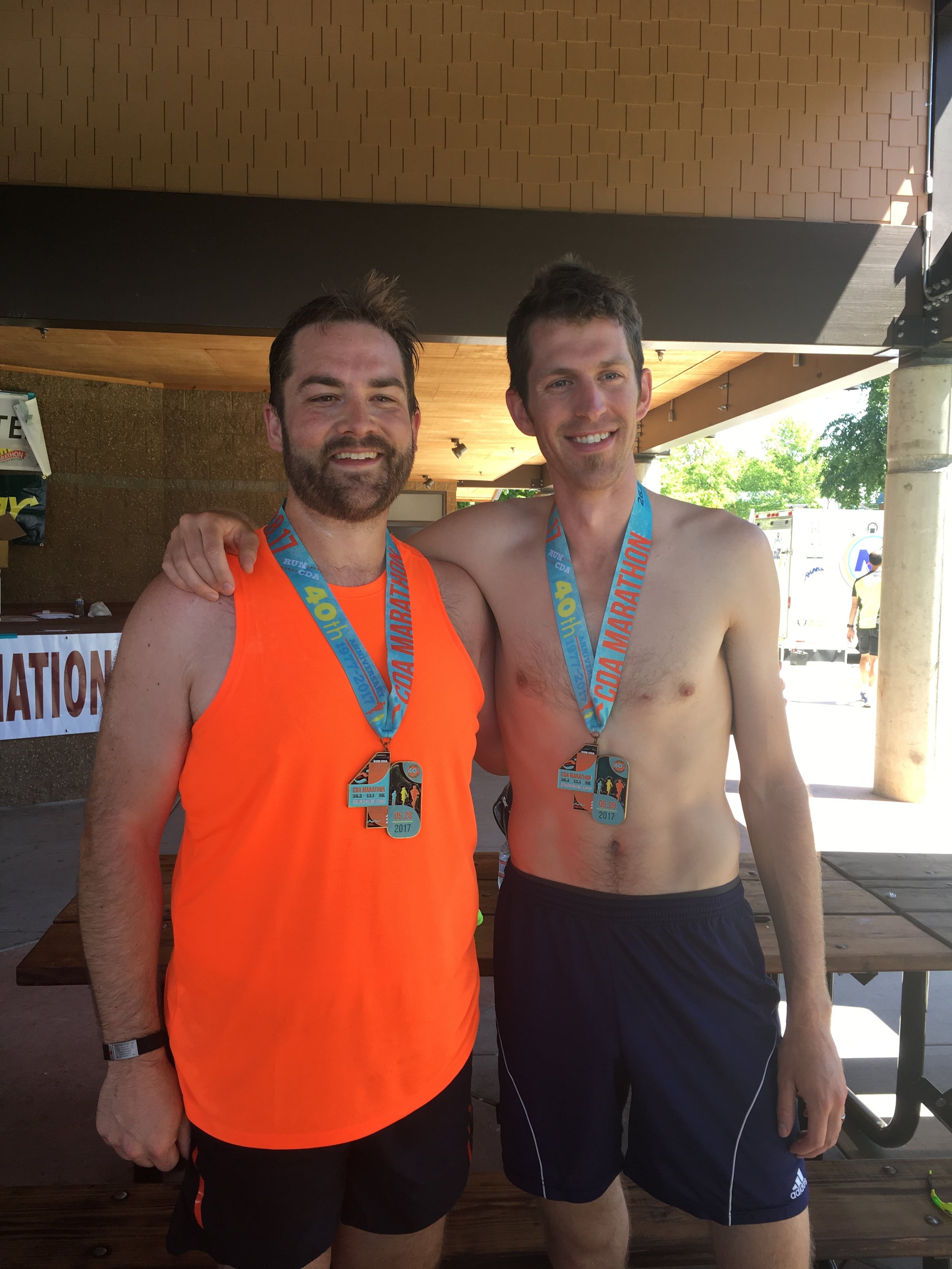
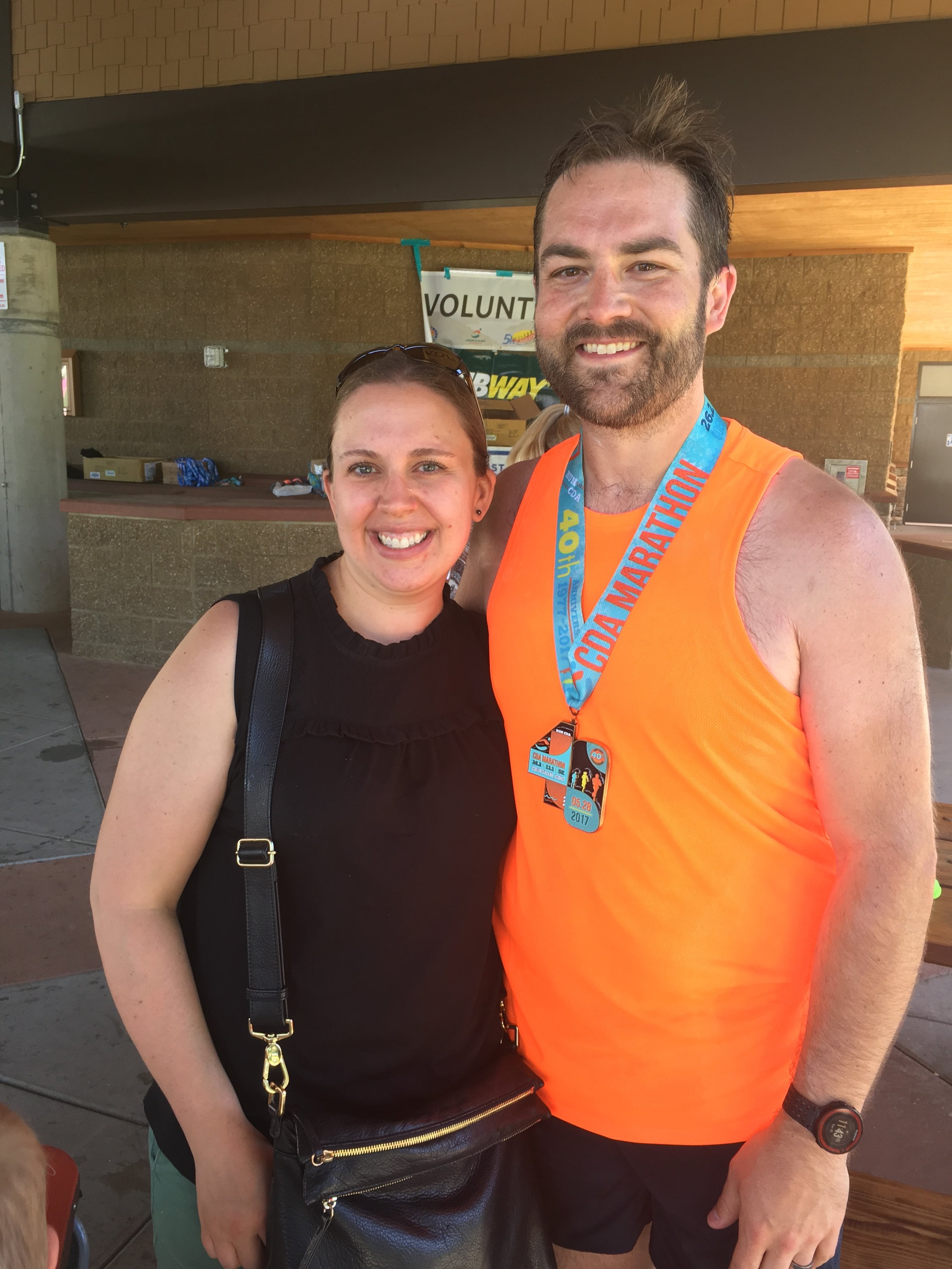
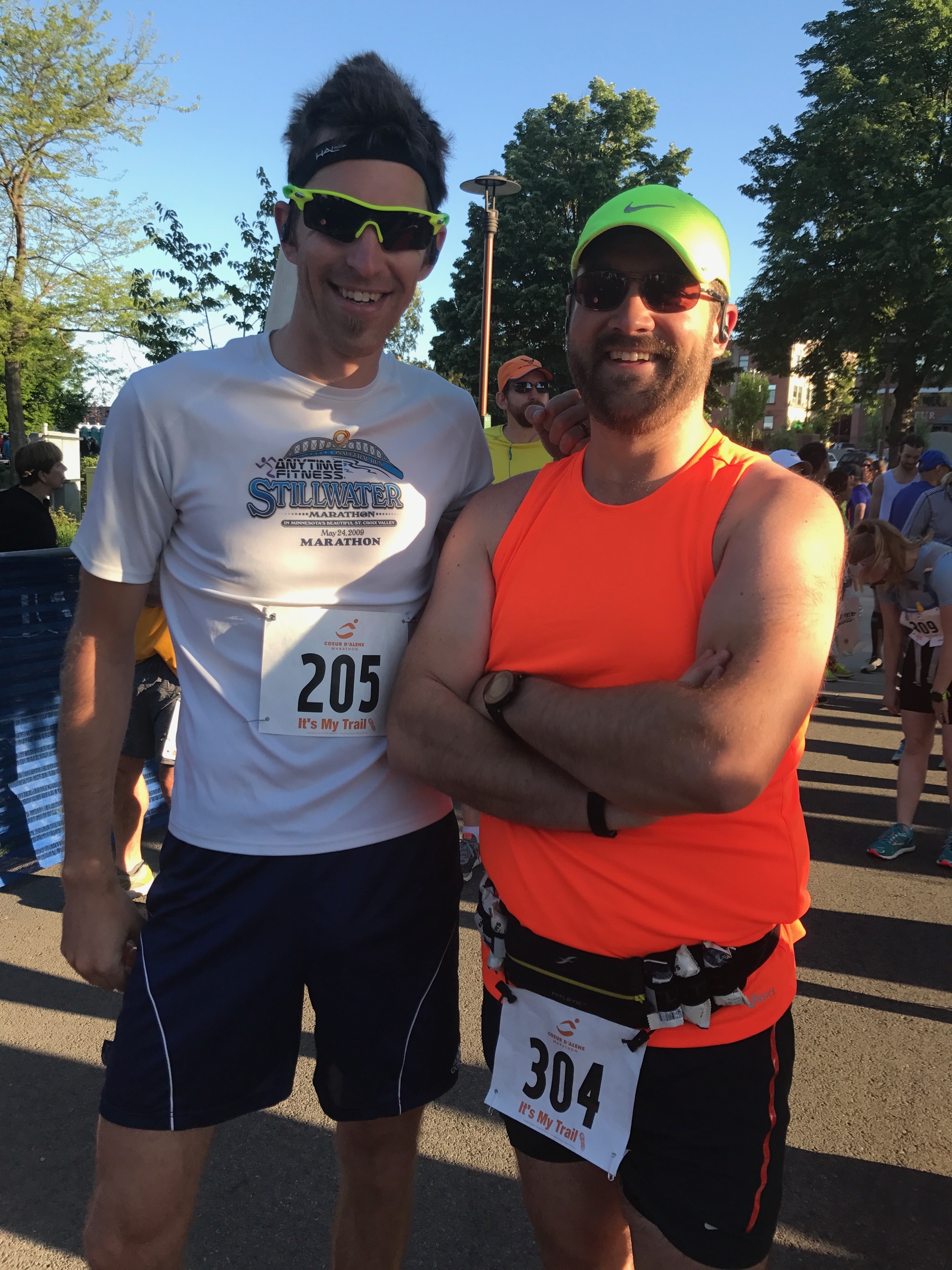
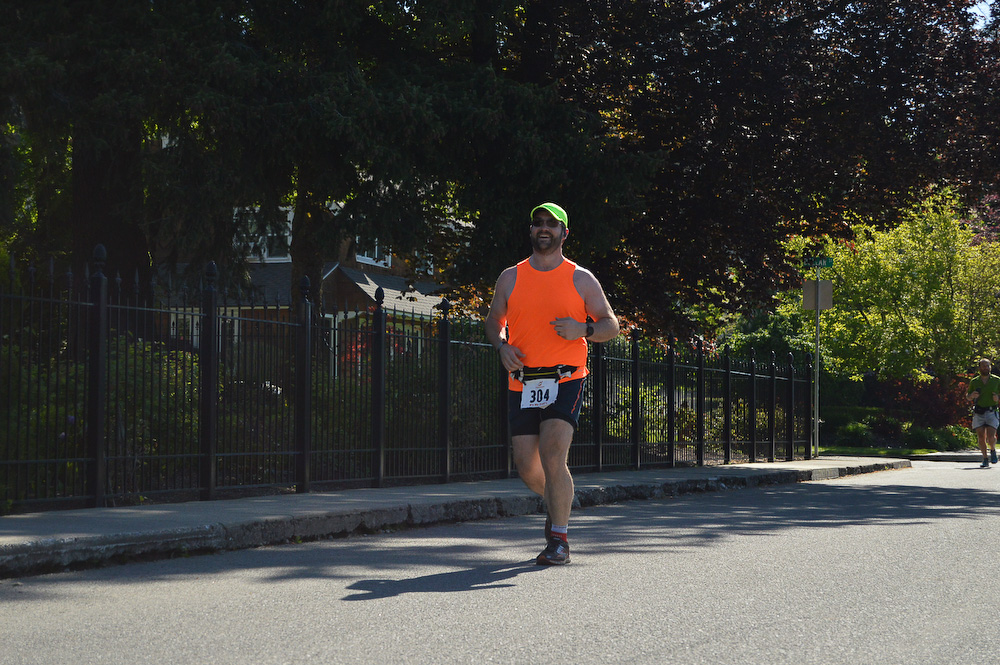
Over Memorial Day weekend 2017, I had the gift of checking off an item from my bucket list: running a marathon. I didn't cover the 26.2 (my GPS said I went 26.4) miles at a particularly quick pace, but I did, in fact, run the entire course. Looming even larger than the speed at which I completed it is the context in which it comes. As I've indicated on my blog here more than once, I've been on a journey of weight loss and improved health over the past couple years (here's a link to my most popular post from a while back). Two years ago this spring, I was at my all-time-high weight, suffering on many levels and in many ways. I was depressed and discouraged. It's hard to describe how much different I feel physically and emotionally today - my run on Sunday is a positive sign of changes already afoot, and yet a reality. As I reflected on the experience this morning, Memorial Day, some lessons came to mind, some that have emerged over the preceding months:
1. Judging people, positively or negatively, based on big flashy moments is fraught -- reality is always much more complicated than the surface level (or even well-informed) perception. We hardly know ourselves accurately - let alone other people!
Perhaps this isn't a lesson I learned exclusively through this experience, but at the very least, it was reinforced by it. I can recall a great number of incidences in my life where, at a sporting event, presentation, concert, or other spectacle, I felt incredibly impressed with the feats accomplished by extraordinary people on stage. Watching in person the winner of an Ironman race cross the finish line, for example, I was in awe of how a human being could do such a thing - and look so relaxed while doing it! What a great person, I thought. How incredible! Feats like this are just outstanding.
On the other end of the spectrum has truth as well. We're all familiar with gawking over news stories of the latest fool who's worst moment made him famous. We pass judgment gleefully on facebook about the moronic lady who locked her kids in the hot car to go shopping, or the maniac who stabbed someone on the subway because someone looked at him wrong. We write these folks off as intrinsically evil. What terrible human beings! How incredible. Only fundamentally flawed people could so something so idiotic.
The reality, I think most of us know, is that neither great achievements - nor great failures - sum up our humanity...sum up who we are. Nor do they necessarily indicate what it took for us to get there. It's easy to fail to appreciate the years of ACEs (Adverse Childhood Experiences) that set the stage for a drug addiction. It's nearly as easy to fail to appreciate the years of training and practice it took for that Ironman winner to prance over the finish line with hardly a hair out of place (from my perspective).
Neither of these vantage points accentuate the incredible importance of grace over it all.
Many, many situations in life aren't as singular or momentous as they seem on the surface. It's far too easy to judge them in either direction: superlatively excellent or horrible. We love to reduce people to their most common denominators, to narrow causes and effects down to singular details. But reality is always more complicated than that. We know this.
On a much smaller scale than any of the examples above, take the marathon I ran. It was an achievement for me, absolutely. I completed a goal I had set for myself. I feel good about it. And it is certainly an indicator of a positive path I've been on over the past 24 months. But the reason it happened isn't because I'm a superior human being, or have a high pain threshold, or have a lot of willpower. It didn't happen because I'm a particularly talented athlete, or just wired for it. It didn't happen because I'm worthy or especially remarkable in some way. (But friends, surely, thank you for the shout outs on Facebook, your well-wishes are appreciated).
The truth is that I've been thinking about, preparing for, and training for this thing since last fall. Since then I've run 3-4 days per week, without fail. I've run half-marathons in practice a dozen or more times this spring. Just about two weeks ago, I completed a 4-hour, 20-mile training run in the heat. Through the winter, I ran in the snow/slush/rain more times than I can count. I was that guy out on the pavement with gloves and a beanie, flashlight strobe flashing, trying not to get hit in the 5pm winter darkness. I was the guy hopping over ice-slush puddles and snow banks. Over the past months, I dragged my rear out onto the trail when I didn't feel like it, when I didn't want to, when it was cold and I was warm on the couch in front of the TV.
"I ran the marathon for 6 months, not 5 hours."
26.2 miles on Sunday was an accomplishment, sure, but it all wasn't about that moment. And it certainly wasn't earned only in that moment. There was so so so much hard work along the way. And there was an incredible amount of grace (at the top of the list has to be my family who tolerated me going out for a 3-hour runs on perfectly good family weekends).
So that's the first lesson. Resist judging people according to outlier situations, good or bad. No one can be reduced to whatever moment. Lots decisions and occurrences and pain happens along the way to get us to them.
I ran the marathon for 6 months, not 5 hours.
2. The real fight is between your ears. Without a doubt, I've been through quite a lot of physical change over the past two years. That bit is for sure. Two years ago, I wasn't even able to run or jog a full mile without stopping to walk. And the truth is that no amount of willpower would've gotten me to 3 miles or 5 or 20 in that state. I had real physical limitations, as all of us do. So hear me, I'm not saying that everything is in the mind, success isn't ONLY willpower. I have lost 80lbs and 20% body fat over the past 2 years.
And now I'm going to use the dreaded conjunction "but," which implies a negation of all that has been said before.
BUT. What happens in our minds is absolutely significant. And in many ways, that is where the real battle plays out. I know this to be true in terms of eating habits, even post bariatric surgery. As I wrote in some of my original posts on the subject, I came to see surgery (accurately I believe) as a tool, not a magic wand. It was one of many strategies that would prove helpful for me in achieving a healthy weight.
What I learned later was that my dream of coming to a time when I wouldn't have to pay attention to my diet would never materialize. The mind game is with me to stay. And it continues. I have to pay attention to what I eat. Full stop. This dynamic applies to probably the vast majority of areas in our lives where we wish to see growth. As character develops and solidifies, sure, hopefully the decisions we are trying to develop become more automatic. But the battle to get there was always up top.
Something I experience in living color while running my first marathon is that by far, the most difficult stretch was the final 6 miles or so. It was brutal. Miserable, honestly. Maybe I shouldn't be surprised, my training program had me run 20 miles at the maximum. Maybe it isn't odd that I was fine over the period of the marathon for which I had trained.
I've heard people talk about "the wall" - and I'm not sure I really experienced that. I wonder if it might've been some combination of dehydration and sodium deficiency. But I'll tell you, I considered quitting more than once in those last few minutes. At one moment, I saw some soft grass in someone's yard and was tempted just to lay down and go to sleep.
The final miles were very painful. Very difficult. My pace had slowed. The spring in my step had weakened. My muscles ached with every clomp. Like I said, I had run 18+ miles several times in training, and each time I came prancing into the house with great positivity and confidence. That last hour of the marathon though, it's a lot. "This is hard," I told myself. Its different than the rest of the training.
I feel as though the whole race is run in that final window. Training makes it possible to have that challenge available in the first place.
Marathon coaches (I've enjoyed the Marathon Training Academy podcast over the past few months) talk about the importance of mental toughness, preparing for the mind games, making plans for how to keep your head in the game, etc. I didn't take much of it seriously honestly. I had my audio book (this Sunday, it was the classic "Fahrenheit 451" - I know, nerdy), I had my music playlists, and I had my common practices of reflecting on identity and calling in life while running. I wasn't worried. But especially in those final two miles, all that support went out the window. The music shut off. Fellow racers around me had thinned out drastically. There were no cheerleaders along the trail. I fell back on feeble sounding prayers - just a couple words more often than not. "Help me." "I can do this." "Please."
When I rounded the final corner, with just a few hundred yards to go, my brother-in-law came running over to report that I had just about a minute left to pull in under my goal time. It was a painful stretch. I might've just walked without that carrot in front of me.
Thinking about the next marathon attempt, I'm already strategizing in my mind, how I can prepare myself for the mental jousting I experienced in that final hour of the race. Is it possible that each day of training should resemble just a bit of sticking with it despite the pain? I had confidence going into the race of my physical preparation. But I wasn't ready for hard mind-work of sticking with it at the end. This dawning reality is both encouraging and clarifying - but also disheartening and confusing.
Marathons are completed at least in part by means of mental tenacity. This is my conclusion. And the same goes for many aspects of life in general.
3. The right gear can help improve attitude -- and getting the right gear can become an obsessive distraction from the work at hand. I like gear, granted. I'm a techy, I love the hunt, I love a good deal, and I love having the right tool for the job. I like to shop, I like researching. Fine. I own all that.
Something I was shocked about is just how much money people spend running. I mean, really. It's perhaps the purest physical endeavor for humans. And yet, we've gone and commercialized it. I mean, with a sport such as golf or downhill skiing, the assumption of cost is a little more obvious. Lift tickets, special boots, fancy parkas, country club memberships, custom clubs, expensive clothes, the list goes on and on. It's part of the territory for sports like that. But running?
What more could you possibly need than perhaps shoes and socks?
Well...
A running watch with GPS is hugely helpful, a smart phone for bragging about your run, shorts and shirts with technical fabrics, compression underwear, running shoes at $150/pair (many people have 2 identical sets to rotate runs), longer sleeve clothes for colder climates, rain proof gear, lights, gloves, hats, visibility gear for being seen on the road, nutrition items, special electrolyte beverages, and the list goes on and on and on. Runners World magazine is just the tip of the ice burg on the marketization of such a simple endeavor. Many might join me in my critique. It says a lot about American culture (and perhaps others) that we have found a way to make money on running.
And with all that being said. I must say that small comforts on such long stretches of athletic effort are hugely valuable. The right fabrics and the right technology are insignificant details that are unnecessary in the end. But they lend a modicum of confidence and improve your attitude while out on the course.
Technology isn't everyone. It can be obsessive. But it can be helpful. (This lesson might be one I already believed haha)
4. Training - preparation - rehearsal - in proper amounts - brings confidence. When I lined up amongst the crowd on that Sunday morning. I might've not looked like the other runners around me. But I felt I belonged. I believed I had earned a spot. I knew I could do what was set before me. I wasn't arrogant, I knew it would be hard, but I had a healthy dose of confidence.
It's absolutely true that finishing the race took, in the end and in the moment, more mental toughness and determination than I had ever anticipated. But my level of confidence would have been no where near its point before the race had I not put in the hours of prep over the previous months. Sometimes athletes or performers are asked by the press or whoever about how they were able to do what they did on such large stages, in such big moments. And often it seems like those questions don't really register with the athlete.
I wonder that observation it has something to do with the preparation ahead of time.
I'm no expert. I'm not elite. Running a marathon was one very small blip along the way for me. I'm not a professional athlete. I'm not exceptional. But my practice did lend me confidence.
I have close friends who are musicians - I'm almost certain this dynamic plays out in their lives. Hours and hours and hours of practice and preparation might not smooth over all nerves. But when they step on the platform, they know they can play the piece of music. A friend of mine has a quote on the wall of her studio that reads something like: We practice so that what is in our hearts can come out in the music we play. The practice doesn't take the heart out of the performance, it enables the real emotive moment to more readily take place. Practice isn't to make a perfect performance per se, its more about creating a connection, about how we feel and make others feel, its about putting on display the deeper more important thing over and above technical ability.
I find this to be true in my craft of preaching. When I have prepared well, when I have preached the sermon dozens of times before I step onto the platform, when I have spent hours before the mirror, prayed over the material and had debates about it with friends, when I have submitted my manuscripts to critiques and painful cuts by trusted advisors, I have a sense of peace and confidence when I step on stage. The moment becomes far less about me as a person - me as a performer - me earning adulation. And likewise, I find that in these circumstances, my heart feels more free to express what God has put there. The message has been internalized and a calm confidence and authenticity shows itself.
I love that feeling.
And in a sense, that's how I felt when I got to the starting line. Calm. Happy. Few nerves. Light.
5. Setting goals - with real deadlines, with real consequences attached - is incredibly motivating. Duh, right? How many times in my life have I heard this? How many times have I been to seminars or sat in class or had conversations with people I respect who have rattled off the importance of the practice? In this experience of running the marathon, the lesson sunk in a little more fully.
What I have observed in myself over the past couple years, is that without a hard goal in front of me, it's far too easy to not do the little things along the way that are necessary to achieve it. If the goal is etherial or "it'd be nice" in nature, the dynamic doesn't take hold. Without the race on the calendar, I'm way more likely to keep my rear end on the couch when its cold and rainy.
But if there's a deadline, a date, a financial sacrifice, and preferably a public demonstration, my level of motivation changes. This might be personality, granted. I got bit by the performance/achievement bug while in high school and the thought of not living up to expectations gives me the hives. I turn projects in on time. I get A's if at all possible. I show up on time. I do my best not to disappoint. And so in the area of fitness, I'm much much more likely to practice and prepare and train if I know there will be a test at the end of the rainbow. And that's true even if the pot of gold is 5 hours of suffering.
Not all of us are wired this way. But I know that if I want to continue the lifestyle of regular exercise, I need to plan on an event. Don't ask me what that is at the moment, one week out from my marathon. But in the coming month, I plan to settle on the next event: cycling, running, triathlon, climbing, or whatever. This is something I've learned over the past 6 months.
I, for one, need the goal to put in the time.
6. Running a marathon is as much about the journey as it is about the destination. This is something I've already hinted at in this article. And it's something that sounds ridiculously cliche. And yet I've found it to be true. Honestly, much of the marathon itself was a blur. The day flashed by. I have memory - but it was all so quick, easy to miss. By the time I got 4 hours in, I'm pretty sure I was in low-sugar, low water, low-something stupor for more or less the rest of the day. I wasn't the best conversationalist with all my friends and family members who showed up to greet me over the line. The truth I found is that, if running a marathon is mostly about that experience, it's probably not worth it. I didn't find it magical per se. It was fleeting. It was over and then I was in the van driving home.
As I've mentioned, a couple years ago, I could hardly string together one mile of continuous running. For the bulk of my life, I've told friends and coworkers that in order for me to run, I would have to be chased - or I needed to be in some kind of competition whereby the running was disguised. Sunday morning basketball for 90 or 120 minutes felt like another thing entirely to me than just going out to pound the pavement. I hated running. It hurt. It was uncomfortable. And the only thing I could think about while doing it was, "when can it be over?"
Many of my readers might be nodding their heads. This is the experience that many have around the sport/activity/torture.
That is no longer the case for me however. I relate to it entirely differently today. In all honesty, I've learned to enjoy running. I like how I feel after a good workout, I like the fresh air, the freedom, the moments of silence or audiobook listening. I like being a fly on the wall, getting to people watch, or getting out in nature. I love it. In fact, today, post marathon, I miss it if I go more than a day or two without it! The first week after the race was particularly hard because most guides say that you shouldn't run for a week AT MINIMUM after a marathon, to ensure proper recovery. Some trainers insist on a 26 day recovery of no/minimal running.
Far from requiring discipline for me to get out there on the course. It's taking discipline for me NOT to run.
The lesson I see in this is that the journey has a lot in it for me. I didn't adopt this new orientation because of the sunday marathon, the destination. I adopted it because of the training, the journey. And although the destination was valuable to me, and brought good things to my life (see the section re: goals above), the greater gift overall arguably came through the training over the months. A genuine enjoyment of an athletic activity like running is a gift to my life, I can't be more grateful for it.
7. Finally - trust. Over the course of the training and prep for the marathon, I listened to a ton of different advice. And honestly, there's a massive amount out there. Just as with any subject, the opinions of experts and armchair-experts alike span the gamut. What I ended up doing, what we all do, is taking the advice of one person, one school of thought, and ignoring or eschewing the advice of another. By taking one path, I rejected the other options. I made a decision and chose, CHOSE, to trust it.
Listen - for those friends of mine who are religious and highly sensitive to choosing the right path out of all the options, I get it. And I'm not advocating just mindlessly picking an option. But life is full of different paths that are inconsequentially different, or simply too numerous to adequately and fully explore. We can't be experts in everything. We have to trust someone's advice - we have to submit to coaches - we have to give ourselves over to the better judgment of people who know something more than we do. It's unavoidable. And if we don't, the paradox of choice (see Barry Schwartz) will fill us with anxiety and overwhelm us in the mean time.
There's probably a dark side in this somewhere: we can infantilize ourselves and try to shuffle off all responsibility by outsourcing our decisions to authorities. But that's not what I'm describing as my lesson here.
The thing I discovered is that at some point, I had to make a choice. And in this case, i found the choice stress relieving. I found it peace-giving. Choosing a plan and sticking to it's point of view helped remove some of the mental energy I needed to make an endless parade of smaller decisions. Once I started my 16-week training, the outline was laid out. 3 runs a week. One short with intervals, one mid-length and quicker than my marathon pace, and one long but slow. Cross-train in between. Rest at least one day a week. (this is the one I used, if you're curious, recommended by a local coach I approached on twitter). I could pencil the whole thing out in a day and it'd be set for weeks to come. When I got to the given week, there was my plan. I didn't have to debate for hours in my mind whether it'd be better to follow up yesterday's run with another run, resting, or a bike ride. The plan laid it out for me.
In this, I learned once again the incredible value of trust - and reliance on someone else, one someone higher/bigger/better than myself. In Christian spirituality, we talk often about trusting God - of whom, I believe, it is an understatement to say is bigger than myself. This process of training for and running a marathon taught me anew that I can't be an expert in everything. I have to choose a plan to follow, I have to follow in someone's footsteps. Yes, I'll be pioneering here or there. I'll experiment. But its absurd to assume that I can live my whole life and not be in anyone's debt. I stand on the shoulders of giants, and so do you. We must trust to live well.
And that's the end folks. Until the next goal finds its way to the calendar...
